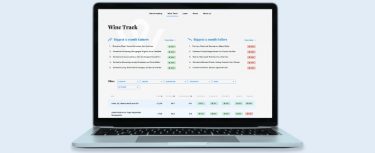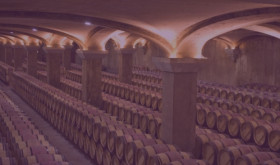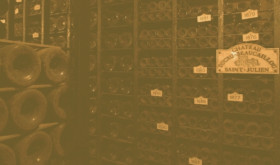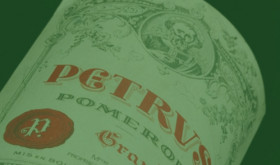
- Technology has revolutionised various aspects of the wine trade, from ensuring provenance to streamlining valuations.
- From blockchain to AI and data analytics, these advancements can improve transparency and efficiency.
- Wine investment tools like Wine Track help investors spot opportunities and discover relative value.
In the rapidly evolving landscape of fine wine investment, technology has emerged as a transformative force, revolutionising various aspects of the industry. From verifying provenance to streamlining valuation processes, advancements such as blockchain and artificial intelligence (AI) have played a crucial role.
This article explores the impact of technology on fine wine investment, delving into blockchain-based provenance verification, AI-driven wine valuation, and digital marketplaces that are shaping the industry’s future.
Blockchain-based provenance verification
One of the significant challenges in the fine wine market is verifying the authenticity and provenance of bottles. Counterfeit wines can undermine investor confidence and erode market trust.
However, blockchain technology has emerged as a powerful tool to address this issue. By creating a decentralised and immutable ledger, blockchain allows for the transparent recording of a wine’s journey from vineyard to consumer.
Each transaction and transfer of ownership can be documented, ensuring a reliable and verifiable record of a wine’s provenance. This technology provides investors with greater confidence in the authenticity and quality of their investments.
However, applying blockchain to tangible assets like wine has some complexities. Unlike virtual transactions, the wine trade involves physical goods with unique characteristics and specific storage requirements. Bottles can be removed from cases, stored improperly, and tax status may vary, posing challenges for a fully distributed ledger system. Despite the existing challenges, blockchain holds significant potential in creating a more secure and trustworthy wine trade ecosystem.
AI-driven wine valuation
Accurate and reliable wine valuation is essential for investors seeking to make informed decisions. AI-powered tools and algorithms are transforming the wine valuation process, leveraging vast amounts of data to generate precise and timely assessments.
By analyzing factors such as vintage, producer, critic ratings, market trends, and historical sales data, AI algorithms can provide sophisticated valuation models. These models offer investors insights into the potential appreciation or depreciation of specific wines, enabling more informed investment strategies.
Digital marketplaces
Digital marketplaces have disrupted traditional fine wine trading by providing a platform that connects buyers and sellers in a transparent and efficient manner. These platforms leverage technology to facilitate secure transactions, streamline logistics, and expand the reach of the market.
Online marketplaces allow investors to access a global network of fine wines, enabling diversification and providing a more extensive selection to choose from. Additionally, these platforms often offer tools for researching wines, comparing prices, and tracking market trends, empowering investors with valuable information to make informed investment decisions.
Fine wine investment tools
One free tool that helps investors is Wine Track. Wine Track is a comprehensive fine wine index that enables investors to identify investment grade wines, spot trends and wine investment opportunities.
The tool uses daily wine price data from multiple sources, tracking over 75,000 investment grade wines. It indexes the prices of multiple vintages of a given wine, and aggregates critics’ scores, to provide a clear overview of a wine’s investment track record.
The tool also highlights the best and worst performing wines over different time periods, and includes a ‘price per point’, which is a clear indicator of relative value to help investing in wine.

Data analytics for market insights
Data analytics has become crucial in fine wine investment, offering investors valuable insights into market trends and patterns. By analyzing vast amounts of data from multiple sources, including auction results, critic ratings, and global demand patterns, investors can gain a deeper understanding of market dynamics.
Data-driven insights enable investors to identify emerging investment opportunities, track the performance of specific wines or regions, and make informed decisions based on historical market trends.
Technology has significantly influenced the landscape of fine wine investment, providing investors with enhanced transparency, efficiency, and analytical capabilities. Digital traceability ensures wines reach the right hands, while AI-driven wine valuation leverages data analytics to generate accurate and timely assessments, guiding investment decisions. As the wine trade continues to adapt the latest technology, investors will be able to navigate the market with greater efficiency and confidence.
WineCap’s independent market analysis showcases the value of portfolio diversification and the stability offered by investing in wine. Speak to one of our wine investment experts and start building your portfolio. Schedule your free consultation today.









